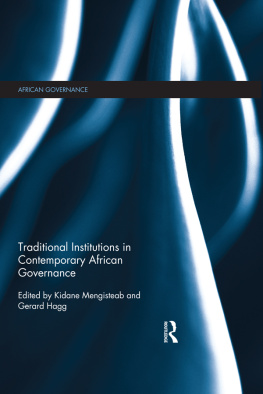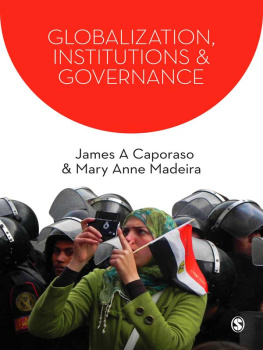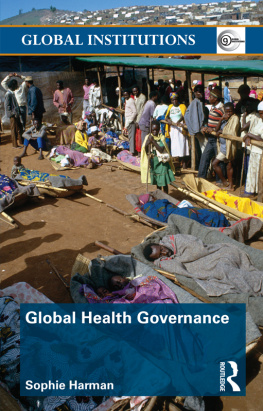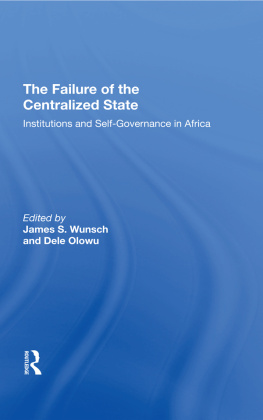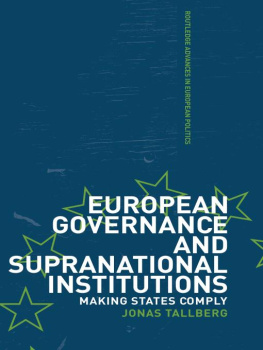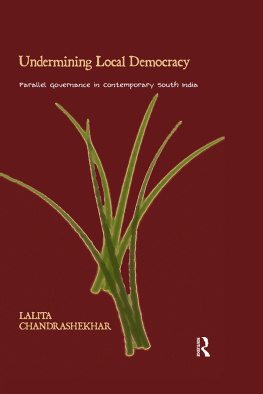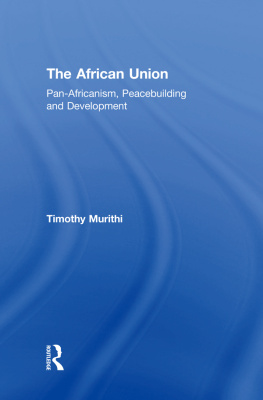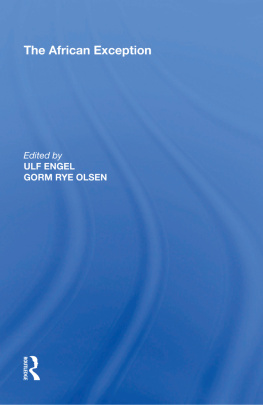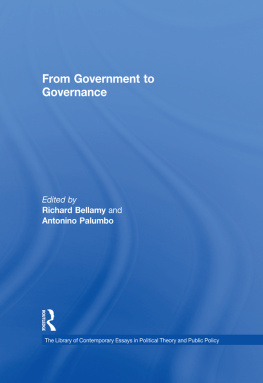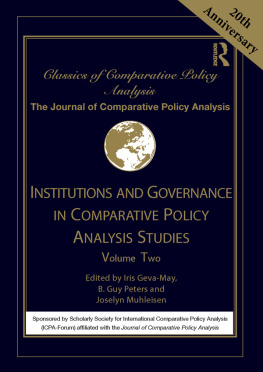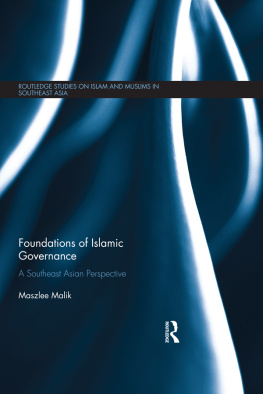Traditional Institutions in Contemporary African Governance
Most African economies range from moderately advanced capitalist systems with modern banks and stock markets to peasant and pastoral subsistent systems. Most African countries are also characterized by parallel institutions of governance one is the state sanctioned (formal) system and the other is the traditional system, which is adhered to, primarily but not exclusively, by the segments of the population in the subsistence peasant and pastoral economic systems.
Traditional Institutions in Contemporary African Governance examines critical issues that are largely neglected in the literature, including why traditional institutions have remained entrenched, what the socioeconomic implications of fragmented institutional systems are, and whether they facilitate or impede democratization. The contributors investigate the organizational structure of traditional leadership, the level of adherence of the traditional systems, how dispute resolution, decision-making, and resource allocation are conducted in the traditional system, gender relations in the traditional system, and how the traditional institutions interact with the formal institutions.
Filling a conspicuous gap in the literature on African governance, this book will be of great interest to policy makers as well as students and scholars of African politics, political economy, and democratization.
Kidane Mengisteab is Professor of African Studies and Political Science at Pennsylvania State University, USA.
Gerard Hagg is a Chief Research Specialist at the Human Sciences Research Council, South Africa.
African Governance
1 Traditional Institutions in Contemporary African Governance
Edited by Kidane Mengisteab and Gerard Hagg
First published 2017
by Routledge
2 Park Square, Milton Park, Abingdon, Oxon OX14 4RN
and by Routledge
711 Third Avenue, New York, NY 10017
Routledge is an imprint of the Taylor & Francis Group, an informa business
2017 selection and editorial matter, Kidane Mengisteab and Gerard Hagg; individual chapters, the contributors
The right of Kidane Mengisteab and Gerard Hagg to be identified as the authors of the editorial material, and of the authors for their individual chapters, has been asserted in accordance with sections 77 and 78 of the Copyright, Designs and Patents Act 1988.
All rights reserved. No part of this book may be reprinted or reproduced or utilized in any form or by any electronic, mechanical, or other means, now known or hereafter invented, including photocopying and recording, or in any information storage or retrieval system, without permission in writing from the publishers.
Trademark notice: Product or corporate names may be trademarks or registered trademarks, and are used only for identification and explanation without intent to infringe.
British Library Cataloguing in Publication Data
A catalogue record for this book is available from the British Library
Library of Congress Cataloging in Publication Data
Names: Kidane Mengisteab, editor, author. | Hagg, Gerard, editor, author.
Title: Traditional institutions in contemporary African governance / edited by
Kidane Mengisteab and Gerard Hagg.Other titles: African governance ; v. 1.
Description: New York : Routledge, 2017. | Series: African governance ; v. 1 |
Includes bibliographical references and index.
Identifiers: LCCN 2016055579| ISBN 9781138714892 (hardback) |
ISBN 9781315227948 (ebook)
Subjects: LCSH: Customary lawAfrica, Sub-Saharan. | Public
administrationAfrica, Sub-Saharan. | Africa, Sub-SaharanPolitics and
government21st century.
Classification: LCC JQ1875 .T73 2017 | DDC 320.967dc23
LC record available at https://lccn.loc.gov/2016055579
ISBN: 978-1-138-71489-2 (hbk)
ISBN: 978-1-315-22794-8 (ebk)
Typeset in Times New Roman
by Wearset Ltd, Boldon, Tyne and Wear
Kidane Mengisteab is Professor of African Studies and Political Science at Pennsylvania State University. The focus of his current research includes the relevance of traditional institutions in Africas governance; the socioeconomic implications of the expansion of extractive industries and commercial farming in Africa; and alternative approaches to democratization in the African continent. He is author or editor of several books on Africa. His most recent book is titled The Horn of Africa: Hot Spots in Global Politics (London: Polity Press, 2015).
Gerard Haggholds a D Litt et Phil in Development Studies from the University of South Africa. He is currently a Chief Research Specialist in the Democracy, Governance, and Service Delivery Research Program of the Human Sciences Research Council (HRSC) in South Africa, working in the areas of traditional institutions of governance and democratization. He is an accomplished project manager, handling large-scale and complex projects within the HSRC dealing with constitutional development, traditional leadership, and governance. He co-managed the International Development Research Centre (IDRC) four-country study on the relationship between traditional and modern institutions of governance in Africa, in cooperation with the Pennsylvania State University. He was responsible for the South African part of the study. He was also the principal investigator of a two-year project for the Royal Bafokeng Nation dealing with customary law and traditional institutions of governance in a modern South African democracy.
Tesema Taa is a distinguished Professor of History at Addis Ababa University, College of Social Sciences, department of history. He has many years of experience in teaching and advising PhD and MA students. He has taught many Ethiopian, African, and World History courses at both undergraduate and graduate levels. He has published books and articles in his area of expertise. In 2014 he received a Certificate of Recognition for his distinguished and excellent teaching with an award from Addis Ababa University. Professor Tesema has participated in several national and international conferences where he presented interesting papers and actively took part in the academic discussions. He has obtained several awards from Oromo Studies Association, Washington DC, from JSPS in Japan, Jimma University, Wallagga University in Naqamtee, and Addis Ababa University. He was also a Research Fellow at: The National Museum of Ethnology in Osaka, Japan; Humboldt University, Berlin; and African and Asian Studies in Kyoto, Japan. He is also an executive member of the Greater Horn Horizon Forum which is an intellectual organization initiated by UNESCO in 2005, of which he was a founding member.
Sadia Musse Ahmed is Country Representative for Somaliland/Somalia of the Pastoral and Environmental Network in the Horn of Africa (PENHA).
Merera Gudina is former Professor of Political Science at Addis Ababa University and has published a number of books and articles on various aspects of Ethiopias political economy. He is also a former member of parliament and he leads the Oromo Peoples Congress, a political party representing the Oromo people.

